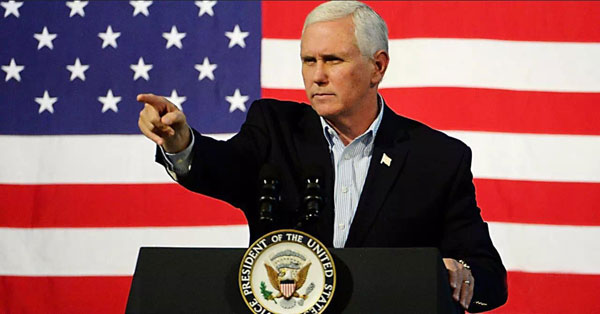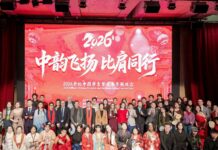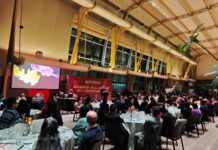Op-ed: It is the US who is wild about meddling in others’ domestic affairs
By Zhong Sheng, People’s Daily
Washington, in recent days, has been busy with accusing China of meddling in its November midterm elections in a variety of occasions, but has provided no evidence from the very beginning till now.
American media also turned their back on such fabricated blames after massive interviews with intelligence analysts from network security corporations who said there were no evidence to prove Washington’s claims.
It is universally acknowledged that the rhetoric of the US to distort facts and beat the air cannot hold water at all.
China, who never get back at the US and has a clear conscience, is still committed to the principle of non-interference in other countries’ domestic affairs. It is a fact that cannot be changed by whatever rhetoric the US has cited.
The world has already had a verdict on who is the biggest enthusiast of interfering in other countries’ domestic affairs on the whole planet.
Its interference in other countries’ domestic affairs both in the past and today has been weighed recently as waves of migrant caravan from Honduras, El Salvador, Nicaragua and other Central American countries are moving their way through Mexico to head toward the US border.
Even though the migrants are still thousands of kilometers away, the US cannot wait to ask relevant countries to take action and even threaten to close the southern border with Mexico.
But as the matter of fact, the migrant issue it is now headache with is a sour fruit planted by the US itself, who has meddled other countries’ affairs with the so-called claims to be policeman of Western Hemisphere.
In Honduras, the US set up military bases in the name of anti-drugs and humanitarianism. In Guatemala and El Salvador, tens of thousands of their residents deceased in the decades-long civil war caused by Washington’s military intervention, leaving the two nations in the shadow till now.
The frequent intervention of the US in Central American countries is directly responsible for part of the immigration crisis which is now gripping the US, pointed out by Joseph Nevins, an American expert on border issue, in a published article titled “How US Policy in Honduras Set the Stage for Today’s Mass Migration”.
The US policy led to political upheavals, pervasive poverty and criminal issue in the Central American countries and as a result forced these migrants to flee from their hometown to the US, he added.
It is astonished that the notorious “Monroe Doctrine” is a seemingly commendatory term in the political dictionary of the US leaders, since they applied such tactics as a granted tool in their Latin American policy from time to time by taking interventionism.
But anyone with a basic knowledge of international relations know that the Monroe Doctrine has already been regarded as a code word of hegemony and evil, as this policy has brought Latin American countries and their people with endless military intervention, regime change and economic oppression.
Those keeping eyes on international ties have found that the US has almost been accustomed to pointing fingers at domestic affairs of many countries in Latin America, Europe and Asia, but never made self-examination on such reach.
Before making a baseless blame to other countries, those politicians in the US should look at itself in the mirror. They would be ashamed of their big mouth in face of the mainstream voices of the world and the reality.
In the 21st century when the concept of mutual respect, fairness, justice and win-win cooperation has already become a global consensus, fairness, equality, and respect are no longer empty words or the hegemony to force others to take pills while itself is sick.
Some American political heavyweights should bear in mind that if they fail to take concrete actions to keep abreast with the times because of their outdated mentality, they would finally lose more.
(Zhong Sheng, a homonym in Chinese for “voice of China”, is a pen name often used by People’s Daily to express its views on foreign policy)







